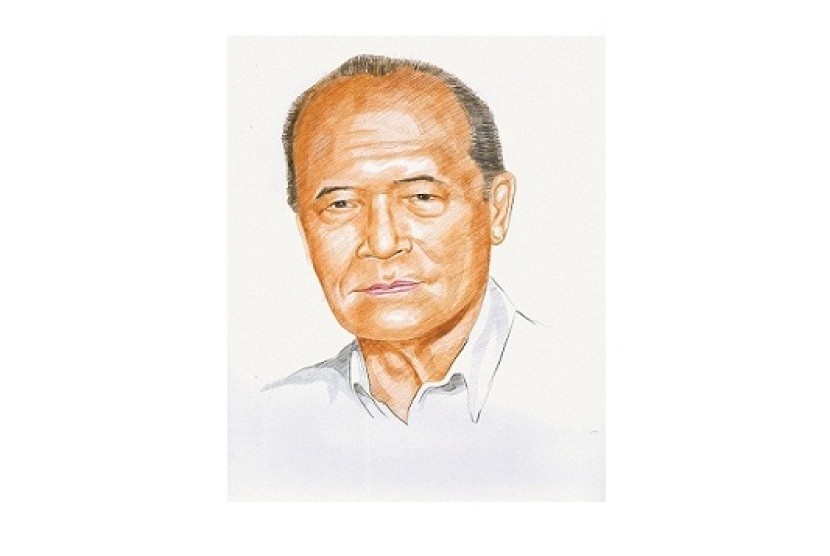REPUBLIKA.CO.ID, By: Ahmad Syafii Maarif
Thus, for example, the Aceh war that lasted for 40 years it finally crashed. Quality of Aceh weapons at all is no longer sufficient to continue the resistance.
Consequently it is logical, the motivation at first so high against the kaphe (infidels) finally dimmed also with all the suffering and humiliation inherited. This is the testimony T Ibrahim Alfian, Indonesian historian from Aceh. "After forty years of war, the religious leaders who are still living, in general already does not have enough potential again to face the Netherlands weapons. Religious leaders there who sit as kali or a judge of religion in uleebalang government that recognize their Netherlands sovereignty, including in the bureaucratic structure of the Netherlands colonial government. "(T Ibrahim Alfian, Perang di Jalan Allah. Jakarta: Sinar Harapan, 1987, p 236)
Aceh was the modal area colonized by the Netherlands shortest, only lasted 30 years (1912-1942). The Acehnese people can be proud of this fact. Aceh's defeat does not mean that the people of the archipelago surrender, but it change of the resinstance strategy: from physical capital and and faith into intellectual capital through modern organizations. Birth of BU (Budi Utomo) in 1908, then SI and Muhammadiyah which coincided with the defeat of Aceh this is an important sign of sliding point the struggle strategy.
However, the intellectual movement that is supported by the spirit of nationalism and the idea of democracy recently occurred in the 1920s, spearheaded by students who gathered in the Association of Indonesia (Perhimpunan Indonesia/PI) in the Netherlands and in the country were greeted by the movement of Indonesian youth who later pledged in the form of Youth Pledge (Sumpah Pemuda) on October 28, 1928 that famous for.
These intellectuals at once is a political activist nationality, something that is logical in the colonies. Thanks to Western education, they have become very aware of how despicable and insult living under colonial system. Islam that respects the dignity of a free man is one of the main triggers to flush the occupation of the archipelago.
In the womb of the 1920s this also, the emergence of the Indonesian Communist Party (PKI) in 1923 and a socio-religious organization Nahdlatul Ulama (NU), which was officially established on January 31, 1926. On July 4, 1927, also born Indonesian National Party (PNI) led by Ir Sukarno that the era of independence became the first president of the Republic of Indonesia.
If NU more engaged in the world with the role of the pesantren kiai phenomenal, PNI is the party of Western-educated intellectuals, similar like the PI that entirely initiated by the intelligent European upbringing. In the modern ideas of nationalism and democracy, the intellectual class generated by Muhammadiyah and NU generally can not match the quality of Western-educated intellectuals. Perhaps this is one reason why in the process of struggle for independence of the students represented more Muhammadiyah and NU serves as a companion to its partners who received a Western education.
In PI, for example, except Dr Soekiman Wirjosendjojo which can then be categorized as a representative of the santri (islamic school students), the other is a group of nationalist intellectuals who do not make religion as a philosophy of struggle even though the majority of them are Muslims. PI figures, Mohammad Hatta, though known to be very pious religious life, the underlying ideology of political struggle is nationalism, not different with Sukarno.
Indeed, in 1967 Hatta, Noer, and many of the alumni of the HMI intends to establish Islamic Democratic Party of Indonesia (PDII), but unfortunately this party fared abortive because it is not allowed Suharto's military regime legalized under the pretext of simplification of the party system. Bung Hatta, a democrat in theory and practice, can not do anything, except to undo the noble intentions.
When I met Deliar Noer on the campus of the University of Chicago in 1980, Nurcholish Madjid (1939-2005) deliver the following reflections about PDII. "If in case Islam Indonesia Democratic Party-led Hatta get establish, the situation in the country does not seem as severe as we face."
As we know, Bung Hatta is Nurcholish Madjid idol in affairs of state and democracy. The military regime is certainly very aware, if PDII as defenders of a healthy democratic system was allowed to stand, the army might not do 'at my will' emasculate democracy in the name of democracy Pancasila.


